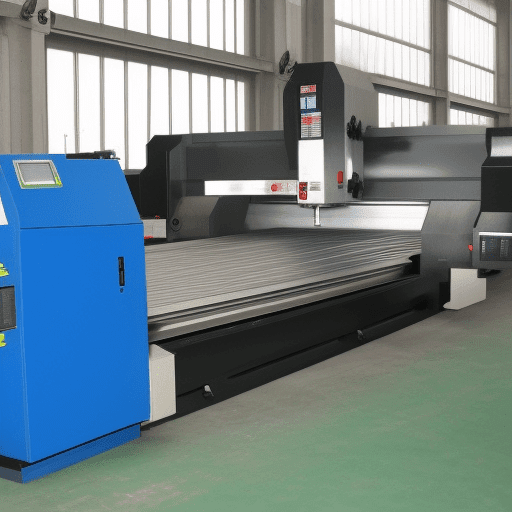When it comes to metal CNC machines, there are a few features that really set them apart from the competition. First, they are designed for precision machining, meaning that they can produce parts with tight tolerances and intricate designs. Second, they are extremely durable and can withstand heavy use. Third, they are highly versatile and can be used for a wide range of applications. Finally, they are relatively easy to operate, making them ideal for both experienced machinists and those new to the field. Taken together, these features make metal CNC machines an ideal choice for anyone looking to produce high-quality parts.
CNC machines for metal can cut metal flawlessly
CNC machines are computer-controlled machine tools that can be used to cut metal flawlessly. CNC stands for computer numerical control. CNC machines for metal are used in a variety of industries, including the aerospace, automotive, and medical industries. CNC machines can cut metal quickly and accurately. CNC machines for metal can be programmed to cut any shape or design. CNC machines for metal can also be used to engrave designs on metal. CNC machines for metal are available in a variety of sizes and shapes. CNC machines for metal can be custom-made to meet the specific needs of a customer. CNC machines for metal are operated by trained professionals. CNC machines for metal are available for purchase or lease. CNC machines for metal can be used in a variety of applications, including cutting, drilling, milling, and engraving. CNC machines for metal are an essential tool for any business that uses metals.
CNC machines have a high precision
CNC machines are controlled by a computer and can create incredibly precise parts. This is because they allow easy and minute adjustments, meaning that dimensions can be changed very slightly if needed. CNC machines are often used in industries where quality is essential, such as aerospace and medical. This is because the precision machining from a CNC machine results in an excellent surface finish, making it suitable for parts that require a fine finish and high precision. For example, CNC machines are used to create parts for airplanes and medical devices. CNC machines are essential in many industries because of their high precision.
CNC machines require sophisticated software
CNC machines are revolutionizing the manufacturing industry by allowing companies to create complex parts with speed and precision. CNC machines are controlled by computer programs that tell the machine how to move in order to create a desired shape. This means that CNC machines require software that is both highly precise and easy to use. There are a number of different software packages on the market, but not all of them are created equal. When choosing a software package for a CNC machine, it is important to consider the needs of the company and the level of experience of the operators. Some software packages are more user-friendly than others, while some are more specialized for certain types of CNC machines. With so many different options on the market, it is important to choose the right software package for the company’s needs.
The high speed CNC machines have
The high speed CNC machines have revolutionized the manufacturing process. By allowing for the rapid production of accurate components, these machines have made it possible to produce products at a fraction of the cost of traditional methods. The speed and precision of these machines also make them perfect for prototyping new products and testing design changes. As a result, the high speed CNC machine has become an essential tool for anyone involved in the manufacturing process.
Consistently tolerances CNC machines hold
Consistently holding tight tolerances is an advantage that CNC machines have over manual machines operated by human workers. Because CNC machines follow a designated path to produce a workpiece, the results are repeated for multiple cycles throughout the workday. This means that the owner of a metal CNC machine can be assured that the tolerances of their production parts will be held consistently. In contrast, before the advent of CNC machines, well-trained machinists made production parts on manual machines. However skilled they were, they were also human and thus prone to making mistakes. This made the results of a batch of components inconsistent. Therefore, the switch to CNC machines has been hugely beneficial in terms of achieving consistent tolerances.
